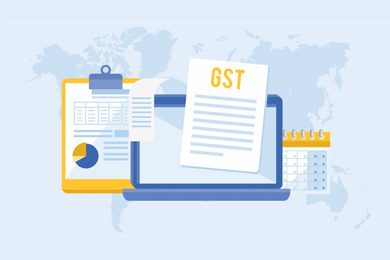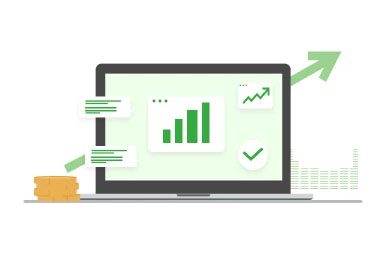



 Tech & IT
Tech & IT
 Business
Business
 Coding & Developer
Coding & Developer
 Finance & Accounting
Finance & Accounting
 Academics
Academics
 Office Applications
Office Applications
 Art & Design
Art & Design
 Marketing
Marketing
 Health & Wellness
Health & Wellness
 Sounds & Music
Sounds & Music
 Lifestyle
Lifestyle
 Photography
Photography
More Learnfly
Business Solution Become an InstructorFinancial analysis involves evaluating financial data to assess a company's performance, profitability, and stability. Utilizing various metrics and tools, analysts interpret financial statements to make informed business decisions, manage risks, and support strategic planning.

By : AWESOME EMMANUEL
Analyze Financial Reports, Build Financial Models with MS Excel...
4.4 1052
8:46:51 hrs 57 lectures All Level

By : AWESOME EMMANUEL
Analyze Financial Reports with SQL...
4.5 1095
5:0:35 hrs 42 lectures All Level

By : Graziano Giuseppe Di Capua
Stock Trading, Derivatives, Forex, Cryptocurrencies, Commodities, Technical Analysis,...
4 5075
3:7:3 hrs 27 lectures All Level
 (4).jpg)
By : Biswaroop Sen Sen
#1 Stock Trading Course - Decode the Stock market & learn the best ways to Invest & T...
4 840
1:33:1 hrs 27 lectures Beginner Level

By : Steve Liguori
An Easy to Use Options Strategy that can Generate Passive Income and Allow You to Buy...
3.9 1112
1:57:35 hrs 19 lectures Beginner Level
.jpg)
By : Shalom Martin
Intraday Trading Made Easy...
4.4 10077
19 lectures All Level

By : David Johnson
Using Facebook, Sherwin-Williams, and Kroger...
4.8 17722
3:18:20 hrs 20 lectures Beginner Level

By : Daniel Alexandru Petrescu
And just when everybody thought performance can be easily measured...
4.0 10045
2:0:41 hrs 12 lectures Expert Level
 (1).jpg)
By : Daniel Alexandru Petrescu
When time is not your ally...
4.8 82229
1:15:35 hrs 9 lectures Expert Level

By : Daksh Murkute
Get started with this Industry of Forex Trading. This course covers all the Important...
4.7 37047
19 lectures Beginner Level












Learn more topics in various categories at one place. Explore unlimited courses in other categories and up-skill yourself today.

 Jazeb Akram
Jazeb Akram 4.2 771159 Beginner Level

 John Hedengren
John Hedengren 4.1 569062 All Level

 Ranjan Pandey
Ranjan Pandey 4.1 346728 All Level

 Muhammad Ahsan Pervaiz
Muhammad Ahsan Pervaiz 4.2 101337 All Level

 Pieter Vliegenthart
Pieter Vliegenthart 4.6 100916 All Level

 Jerome P.
Jerome P. 4.8 100881 All Level

 Senol Atac
Senol Atac 4.9 100091 All Level

 Vikas Munjal
Vikas Munjal 4.8 100064 Beginner Level

 Avinash A
Avinash A 4.8 100013 All Level

 Biz Facility
Biz Facility 6 Lectures Beginner Level

 Biz Facility
Biz Facility 6 Lectures Beginner Level

 Biz Facility
Biz Facility 5 Lectures Beginner Level

 Biz Facility
Biz Facility 4 Lectures Beginner Level

 Biz Facility
Biz Facility 4 Lectures Beginner Level

 Biz Facility
Biz Facility 6 Lectures Beginner Level
.jpg)
 Prabh Kirpa Classes
Prabh Kirpa Classes8 Lectures Beginner Level

 AWESOME EMMANUEL
AWESOME EMMANUEL57 Lectures Beginner Level

 AWESOME EMMANUEL
AWESOME EMMANUEL42 Lectures Beginner Level
.jpg)
 Piyush Arora, CFA, CAIA
Piyush Arora, CFA, CAIA16 Lectures Beginner Level

 LEMMY FRANCISCO KAWONGA
LEMMY FRANCISCO KAWONGA 46 Lectures Beginner Level

 LEMMY FRANCISCO KAWONGA
LEMMY FRANCISCO KAWONGA 16 Lectures Beginner Level
.png)
 CA Kuldeep Sharma
CA Kuldeep Sharma32 Lectures Beginner Level
.jpg)
 Kiran Beldar
Kiran Beldar8 Lectures Beginner Level
.jpg)
 Kiran Beldar
Kiran Beldar8 Lectures Beginner Level
.jpg)
 Kiran Beldar
Kiran Beldar8 Lectures Beginner Level
.jpg)
 SONU THOMAS
SONU THOMAS26 Lectures Beginner Level
.jpg)
 SONU THOMAS
SONU THOMAS10 Lectures Beginner Level
.png)
 CA Kuldeep Sharma
CA Kuldeep Sharma16 Lectures Beginner Level
.jpg)
 Zenith Academics
Zenith Academics55 Lectures Beginner Level

 Zenith Academics
Zenith Academics18 Lectures Beginner Level

 Zenith Academics
Zenith Academics39 Lectures Beginner Level

 Veer Tutorial
Veer Tutorial71 Lectures Beginner Level

 Graziano Giuseppe Di Capua
Graziano Giuseppe Di Capua27 Lectures Beginner Level

 Victor Ogundele
Victor Ogundele81 Lectures Beginner Level

 Biz Facility
Biz Facility 5 Lectures Beginner Level
 (4).jpg)
 Biswaroop Sen Sen
Biswaroop Sen Sen27 Lectures Beginner Level

 Steve Liguori
Steve Liguori19 Lectures Beginner Level
.jpg)
 Greg Henriques
Greg Henriques15 Lectures Beginner Level
.jpg)
 Shalom Martin
Shalom Martin19 Lectures Beginner Level
.jpg)
 Shalom Martin
Shalom Martin11 Lectures Beginner Level

 Urs Ravi I Vedanta Educational Academy
Urs Ravi I Vedanta Educational Academy275 Lectures Beginner Level

 Daniel Alexandru Petrescu
Daniel Alexandru Petrescu8 Lectures Beginner Level

 Daniel Alexandru Petrescu
Daniel Alexandru Petrescu8 Lectures Beginner Level

 David Johnson
David Johnson20 Lectures Beginner Level

 Daniel Alexandru Petrescu
Daniel Alexandru Petrescu8 Lectures Beginner Level

 Daniel Alexandru Petrescu
Daniel Alexandru Petrescu9 Lectures Beginner Level

 Daniel Alexandru Petrescu
Daniel Alexandru Petrescu8 Lectures Beginner Level

 Daniel Alexandru Petrescu
Daniel Alexandru Petrescu10 Lectures Beginner Level

 Daniel Alexandru Petrescu
Daniel Alexandru Petrescu12 Lectures Beginner Level

 Daniel Alexandru Petrescu
Daniel Alexandru Petrescu9 Lectures Beginner Level
 (1).jpg)
 Daniel Alexandru Petrescu
Daniel Alexandru Petrescu9 Lectures Beginner Level

 Daksh Murkute
Daksh Murkute19 Lectures Beginner Level

 Dobromir Dikov FCCA, FMVA
Dobromir Dikov FCCA, FMVA55 Lectures Beginner Level

 Chester Sky
Chester Sky14 Lectures Beginner Level

 Humberto Malaspina
Humberto Malaspina47 Lectures Beginner Level

 Accounting is a piece of cake VRN
Accounting is a piece of cake VRN9 Lectures Beginner Level

 Steve Liguori
Steve Liguori10 Lectures Beginner Level

 Steve Liguori
Steve Liguori14 Lectures Beginner Level

 Tawanda Irvine Makoni
Tawanda Irvine Makoni10 Lectures Beginner Level

 Tawanda Irvine Makoni
Tawanda Irvine Makoni18 Lectures Beginner Level

 Atif Noor
Atif Noor12 Lectures Beginner Level

 Anurag Singal
Anurag Singal17 Lectures Beginner Level

 Ross Maynard
Ross Maynard12 Lectures Beginner Level

 Anurag Singal
Anurag Singal23 Lectures Beginner Level

 Blair Cook
Blair Cook10 Lectures Beginner Level

 Blair Cook
Blair Cook5 Lectures Beginner Level

 Blair Cook
Blair Cook5 Lectures Beginner Level

 Blair Cook
Blair Cook7 Lectures Beginner Level

 Blair Cook
Blair Cook7 Lectures Beginner Level

 Blair Cook
Blair Cook8 Lectures Beginner Level

 Blair Cook
Blair Cook28 Lectures Beginner Level

 Blair Cook
Blair Cook8 Lectures Beginner Level

 Blair Cook
Blair Cook7 Lectures Beginner Level

 CA N Raja Natarajan
CA N Raja Natarajan25 Lectures Beginner Level

 Manish Gupta
Manish Gupta34 Lectures Beginner Level

 Quantic Statistics R spatial analysis
Quantic Statistics R spatial analysis13 Lectures Beginner Level

 Ashwini Bissa
Ashwini Bissa14 Lectures Beginner Level
Financial analysis involves evaluating the financial health and performance of a business through the examination of financial statements, ratios, and other relevant metrics. It aims to provide insights into a company's profitability, liquidity, solvency, and overall financial viability.
Financial analysis is crucial for decision-making by investors, creditors, and internal management. It helps stakeholders assess a company's past performance, predict future trends, and make informed decisions related to investments, lending, or strategic planning.
Key methods include ratio analysis, trend analysis, cash flow analysis, and comparative analysis. These methods help in assessing a company's financial strengths and weaknesses, identifying areas for improvement, and making strategic financial decisions.
Technology has significantly impacted financial analysis through the use of financial software, data analytics tools, and artificial intelligence. These technologies enable faster data processing, more sophisticated modeling, and real-time analysis, enhancing the accuracy and efficiency of financial assessments.
Challenges in financial analysis include dealing with complex financial instruments, interpreting economic uncertainties, and staying abreast of evolving accounting standards. Financial analysts must also navigate ethical considerations and communicate findings effectively to stakeholders.





